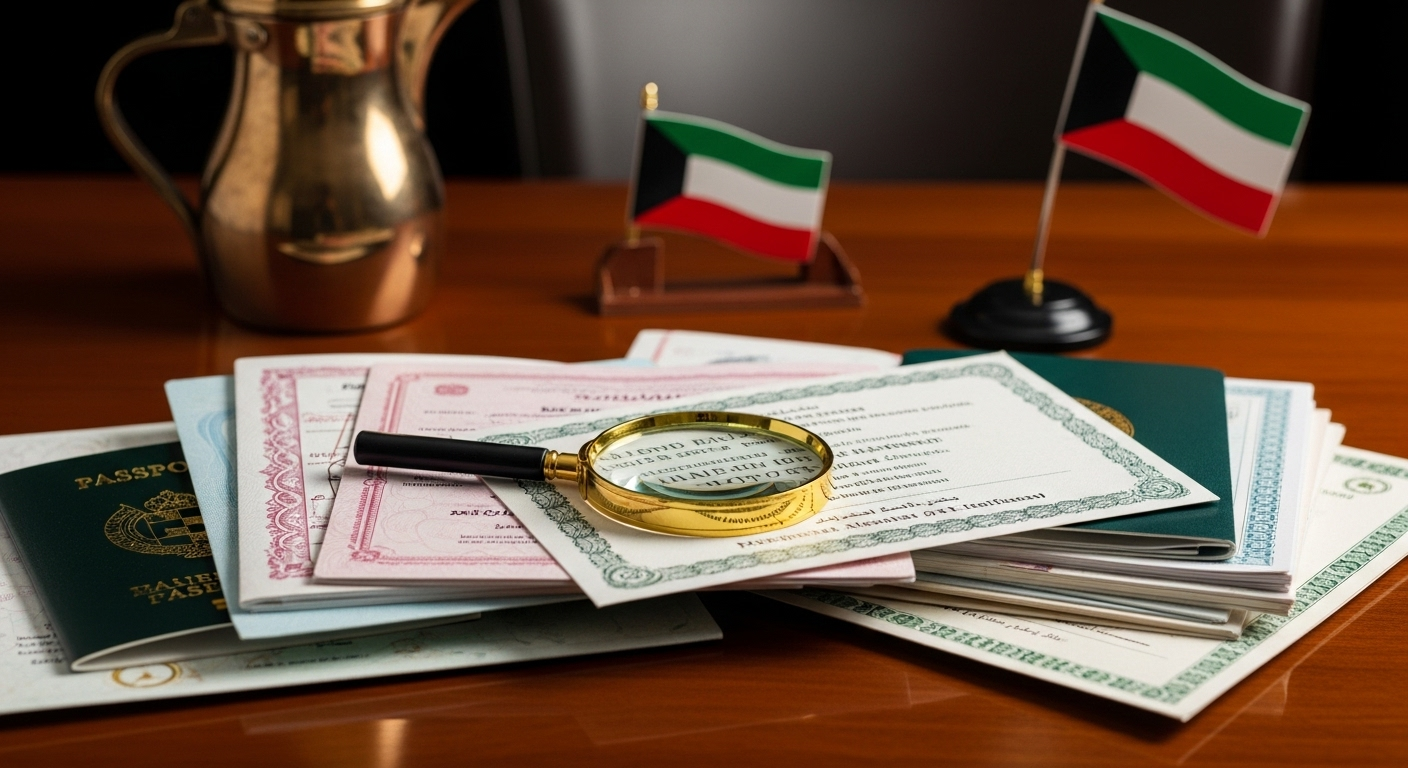
Understanding Kuwait’s Requirements for Foreign Documents
When submitting foreign-issued documents for official use in Kuwait, it’s essential to understand the country’s legalization and attestation requirements. Whether you’re a U.S. citizen planning to work, study, or conduct business in Kuwait, your documents must go through a formal process to be recognized as valid by Kuwaiti authorities.
This article provides a detailed overview of Kuwait’s document legalization procedures, from authentication in the United States to final approval by the Kuwait Ministry of Foreign Affairs.
What Is Document Legalization?
Document legalization is a multi-step authentication process that verifies the legitimacy of a foreign document before it can be accepted by a government or institution in another country.
Because Kuwait is not a member of the Hague Apostille Convention, U.S. documents must go through a complete chain of authentication and legalization, ending with the Embassy of Kuwait in Washington, D.C.
This ensures that the document has been reviewed and verified by all required U.S. authorities and the Kuwaiti government.
Step-by-Step Process for Legalizing U.S. Documents for Kuwait
The legalization process for documents issued in the United States generally includes the following stages:
1. Notarization (if required)
If your document is not issued by a government authority — for example, an affidavit, authorization letter, or business document — it must first be notarized by a licensed U.S. Notary Public.
This confirms that the signature on the document is genuine.
2. State Authentication
Once notarized, the document must be certified by the Secretary of State in the state where it was issued. This step confirms the notary’s credentials or the authority of the issuing official.
3. U.S. Department of State Authentication
After state-level authentication, documents are submitted to the U.S. Department of State – Office of Authentications in Washington, D.C., for federal certification.
This step ensures that the state or federal signature and seal are genuine and valid for international use.
4. Kuwait Embassy Legalization
Finally, the document must be legalized by the Embassy of Kuwait in Washington, D.C. The embassy verifies the U.S. Department of State certification and affixes its official seal, making the document valid for use in Kuwait.
Types of Documents That Require Legalization
Depending on the purpose, several types of personal, educational, and commercial documents may need legalization before use in Kuwait, including:
-
Personal Documents – Birth certificates, marriage certificates, police records, passports, and medical letters
-
Educational Documents – Diplomas, transcripts, and degrees for employment or academic purposes
-
Corporate and Trade Documents – Commercial invoices, certificates of origin, business contracts, and company registrations
Each document category may have specific requirements for notarization and supporting paperwork.
Why Legalization Is Required for Kuwait
Kuwaiti authorities require legalization to ensure the authenticity of foreign-issued documents and to prevent the use of falsified or altered paperwork.
This verification process protects both government agencies and private institutions in Kuwait by ensuring that all submitted documents come from verified and legitimate sources.
Failure to legalize a document properly can lead to delays in visa issuance, work permit approval, academic recognition, or business registration.
Tips for a Smooth Legalization Process
-
Verify all details on your document before submission to avoid rejection.
-
Use consistent names across all documents (passport, certificates, letters).
-
Plan ahead, as the entire process can take several weeks depending on the type of document and agency workload.
-
Consult the Embassy of Kuwait or a trusted service provider for updated requirements and processing fees.
